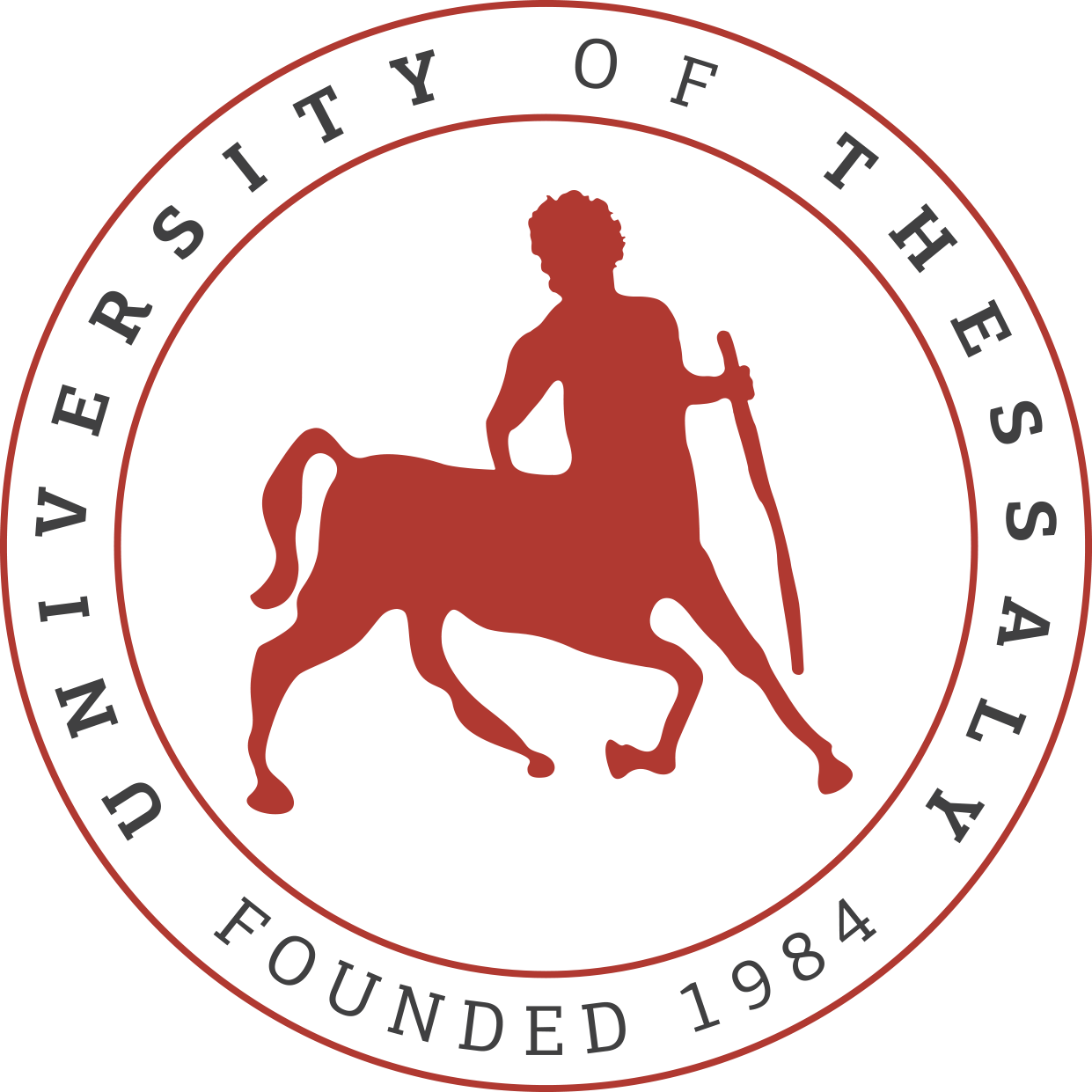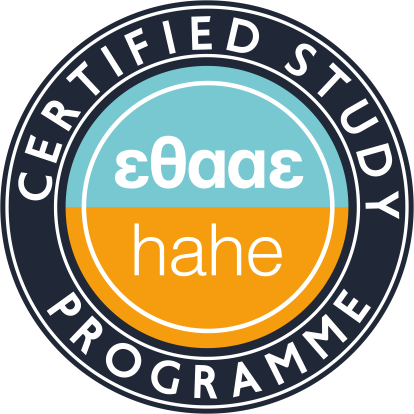1st Semester – Contemporary pedagogical approaches and practical applications of play
ECTS Units: 12
Professor: Michalopoulou Aikaterini, Magos Kostas
COURSE CODE A1-X
STUDY SEMESTER 1st / WEEKLY TEACHING HOURS 3
CREDIT UNITS 12
COURSE TYPE MANDATORY
PREREQUISITE COURSES:-
LANGUAGE OF INSTRUCTION and EXAMINATIONS: GREEK
THE COURSE IS OFFERED TO ERASMUS STUDENTS –
COURSE WEBSITE (URL)
https://eclass.uth.gr/modules/auth/courses.php
2. LEARNING OUTCOMES
Students will be able to use their acquired knowledge and understanding of game theory and practice issues in their professional capacity. They will be able to develop arguments and have the skills to utilize, and also transmit, modern pedagogical approaches to play.
They will have the ability to gather and interpret data on perceptions, attitudes and practices towards play, from different settings such as schools, playgrounds, neighborhoods etc.
They will be able to design and carry out research, with different methods and tools, about the psychological, pedagogical and social dimensions of play.
They will be able to collaborate with other professionals (psychologists, pedagogues, sociologists, etc.) in order to analyze research data, but also to promote proposals related to the modern practices of the game.
They will be able to clearly and concisely communicate their conclusions and the knowledge and reasoning on which they are based, and proceed to logical assumptions on which they are based, to both specialist and non-specialist audiences related to issues of play and creativity.
General Skills
- Respect for diversity and multiculturalism
- Demonstrating social, professional and ethical responsibility and sensitivity to gender issues
- Project planning and management
- Promotion of free, creative and inductive thinking
- Teamwork
- Work in an international environment
- Work in an interdisciplinary environment
- Generating new research ideas
3. COURSE CONTENT
In the proposed course, various pedagogical dimensions of play will be approached, such as socio-pedagogical theories of play, play and school curricula, play as an educational tool, forms and types of play and their role in education, play and intercultural education, play and creativity, play and learning cultures, play and cognitive areas, play and the role of the teacher and the child, evaluation and implementation of play practices, etc. Through the above dimensions, learners will have the opportunity to learn about the important role of play in education, its relationship with school theory and practice both in Greece and internationally, but also various programs and educational applications that focus on the use of play in the educational process and in the organization of play contexts.
Main thematic sections:
- Pedagogical theories about play and contemporary research
- Forms and types of games
- The game as an educational tool in the curriculum
- Play and school curricula of other countries
- Play, experiential learning and the role of the teacher
- Play and creativity/problem solving
- The intercultural dimension of the game
- Gender stereotypes and play
- Play and play areas
4. TEACHING AND LEARNING METHODS – ASSESSMENT
DELIVERY METHOD
Face to face, Distance learning etc.
Face to face
USE OF INFORMATION AND COMMUNICATION TECHNOLOGIES
Use of T.P.E. in Teaching, in Laboratory Education, in Communication with students
Use of ICT in teaching and communication with students
TEACHING ORGANIZATION
The way and methods of teaching are described in detail.
Lectures, Seminars, Laboratory Exercise, Field Exercise, Literature Study & Analysis, Tutorial, Internship (Placement), Clinical Exercise, Art Workshop, Interactive Teaching, Educational Visits, Study Preparation (Project), Writing Paper / Assignments, Artistic Creation, etc. etc.
The student’s study hours for each learning activity as well as unguided study hours according to ECTS principles are listed
Activity
Semester Workload
Choose
2 ECTS
Interactive teaching
2 ECTS
Workshop 2 ECTS
Educational visits
1 ECTS
Writing assignments
5 ECTS
STUDENT EVALUATION
Description of the evaluation process
Assessment Language, Assessment Methods, Formative or Deductive, Multiple Choice Test, Short Answer Questions, Essay Development Questions, Problem Solving, Written Assignment, Report / Report, Oral Examination, Public Presentation, Laboratory Work, Clinical Patient Examination, Artistic Interpretation, Other / Others
Explicitly defined evaluation criteria are mentioned and if and where they are accessible by students.
Assessment is done through assignments. Students prepare two assignments (one group and one individual). The first concerns the presentation of a research article of their own choice on the subject of the game (using ppt). The second concerns the writing of a content-based literature review on one or more dimensions of the game (in essay form). The word count of the paper is 3000 to 3500 words.
5. RECOMMENDED-BIBLIOGRAPHY
Suggested Bibliography:
– Related scientific journals:
Greek and translations into Greek
Avgitidou, S. (2001) The Game. Modern research and teaching approaches. Athens: Print.
Brock, A., Dodds, S., Jarvis, P. & Olusoga, Y. (2016). (Ed. M. Sakellariou). Pedagogy of play in preschool and school education. Athens: Pedio.
Fleer, M. (2018) Play in preschool. From personal experiences to modern theories. (Professional Editor – Introduction: M. Birbilis).Thessaloniki: Sofia.
Ier, P. (2009) Place in the game. I’m learning to play, I’m learning to live. Athena:Metaichmio
Botsoglou K. (2010) Outdoor play areas and the child. Athens: Gutenberg
Huizinka, G. (2010). The man and the game. Athens: Knowledge Foreign language
Briggs, M. and Hansen, A. (2012). Play based learning in the primary school. London:Sage.
Canning, N. (2011) (Ed.). Play and practice in the early years. London: Sage.
Hamayon, R. (2016). Why we play. An anthropological study. Chicago: Hau Books.
Harris, P. (2000). The Work of the Imagination. London: Wiley-Blackwell.
Michalopoulou, Aik.(2001) A Spatio-Pedagogical Approach to the Symbolic Play as Kindergarten Activity in Early Childhood, European EarlyChildhood Education Research Journal, 9, 2, 59-68.
Michalopoulou, Aik.(2013) Play research as dynamic framework of learning in Early Childhood Education from children’s perspectives, Conference Book, International Scientific and Professional Conference OMEP2013, 145-149.
Michalopoulou, Aik., Grantza, A. (2014). The Design, Realisation, and Evaluation of an Educational Programme: Promoting Play in Kindergarten, The International Journal of Early Childhood Learning, volume 20, issue 4, 11-17.
Moyles, J. (2006). The Excellence of Play, Buckingham: Open University Press.
Pellegrini, A. D. (2011). The Oxford Handbook of the development of play. Oxford: Oxford University Press.
Rogers, S. and Evans, J. (2008). Inside Role-Play in Early Childhood Education. Researching young children’s perspectives.kent: Routledge.
Ryall, E., Russell, W. & MacLean, M. (2013). The Philosophy of Play. Abingdon, Oxon: Routledge.
White, R. (2013) The power of play. Minnesota: Minnesota Children’s Museum.
Related Scientific Journals
International Journal of Play
American Journal of Play


